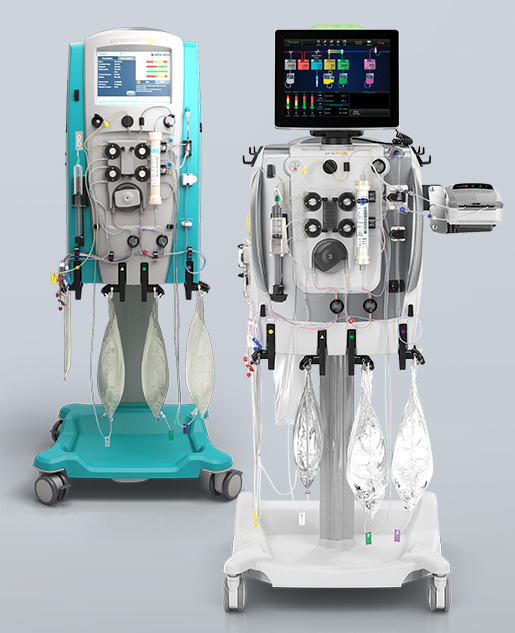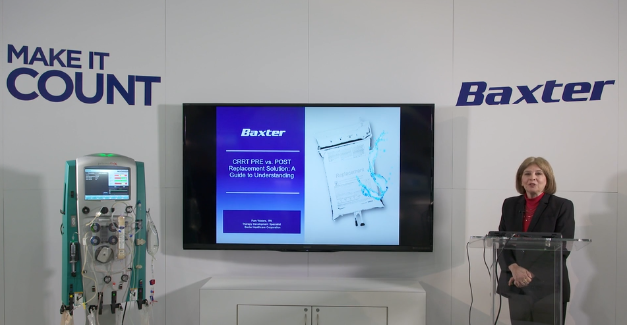CRRT
PRISMAX/PRISMAFLEX Systems provide the truly slow continuous treatment that critically ill patients may require

Easily Switch Between Therapies
PRISMAX and PRISMAFLEX Systems deliver multiple modes of Continuous Renal Replacement Therapy (CRRT) without the need for additional equipment.
CVVHDF: Continuous Veno-Venous Hemodiafiltration
CVVHD: Continuous Veno-Venous Hemodialysis
CVVH: Continuous Veno-Venous Hemofiltration
SCUF: Slow Continuous Ultrafiltration

Simplify Electrolyte Management With Our Comprehensive Portfolio of CRRT Solutions
- Ready to use: Premixed solutions may help minimize preparation time, waste, and potential for medication errors1,2
- Flexible: Available in a wide range of bicarbonate buffered solutions with various ionic formulations
- Self-sealing: All solutions are packaged in two-compartment bags with self-sealing luer lock capability
- On-label: A wide range of replacement solutions allow for security of on-label delivery of all CRRT modalities

PHOXILLUM Solution
The ONLY FDA-approved premixed CRRT replacement solution with phosphate, available in 2 formulations

PRISMASATE Solution
Standard dialysate solution available in seven formulations

Pam Waters, RN, explains the uses and benefits of CRRT replacement solutions, and the differences between pre- and post- replacement solutions.
|
The PRISMAFLEX and PRISMAX Systems are intended for: PHOXILLUM and PRISMASOL Renal Replacement Solution Indications and Important Risk Information Indications and Usage
|
|
Please see PHOXILLUM and PRISMASOL Solutions full Prescribing Information. MARS is indicated for the treatment of drug overdose and poisonings. The only requirement is that the drug or chemical be dialyzable (in unbound form) and bound by charcoal and/or ion exchange resins. |
